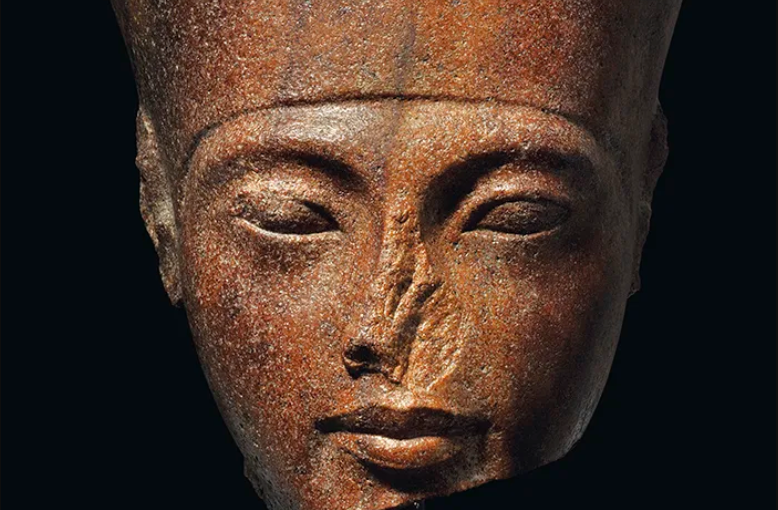Egyptian authorities allege that the bust of the ancient pharaoh was stolen from Karnak temple in Luxor.
Officials from Egypt are making efforts to stop a British auction house from selling the statue of Tutankhamun’s head. Christie’s auction house is set to put in on sale next month.
The auction which will take place on the 4th of July is expected to raise over £4 million dollars for Tut’s bust alone. The statue is made from brown quartzite and portrays the young pharaoh as the ancient Egyptian god of the sun, Amun.
Egyptian officials are now demanding Christie’s show proof of the bust’s legal exportation. This move came after concerns were raised that the statue was looted from an ancient site, the Karnak temple complex.
According to The Guardian, head of Egypt’s supreme council for antiquities Dr. Mostafa Waziri is adamant on putting the auction to a halt. “We will do our best to stop this auction immediately,” Dr. Waziri reportedly said. “We will talk to the Egyptian foreign ministry and our ambassador in London to do our best to stop it, as we have to check.”
The Guardian reports that a Christie’s spokeswoman has given a statement regarding the issue. She said in the auction house’s defense:
“Ancient objects by their nature cannot be traced over millennia. It is hugely important to establish recent ownership and legal right to sell which we have clearly done. We would not offer for sale any object where there was concern over ownership or export.”
She said the statue was previously widely exhibited, and that Christie’s informed the Egyptian embassy in London before the sale. “There is a longstanding and legitimate market for works of art of the ancient world, in which Christie’s has participated for generations. Christie’s strictly adheres to bilateral treaties and international laws with respect to cultural property and patrimony,” she said.
“There is a longstanding and legitimate market for works of art of the ancient world, in which Christie’s has participated for generations. Christie’s strictly adheres to bilateral treaties and international laws with respect to cultural property and patrimony,” the spokeswoman added.

